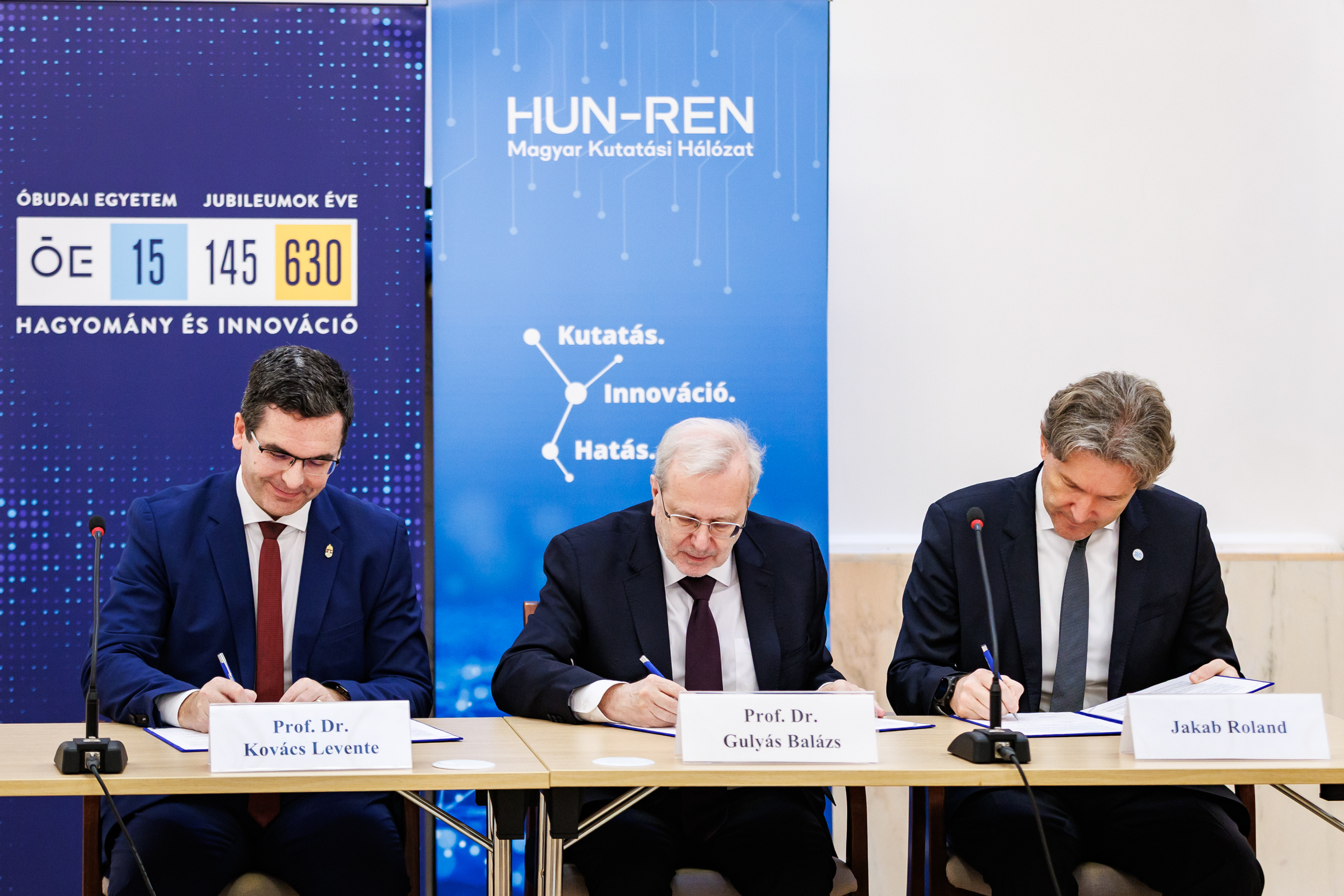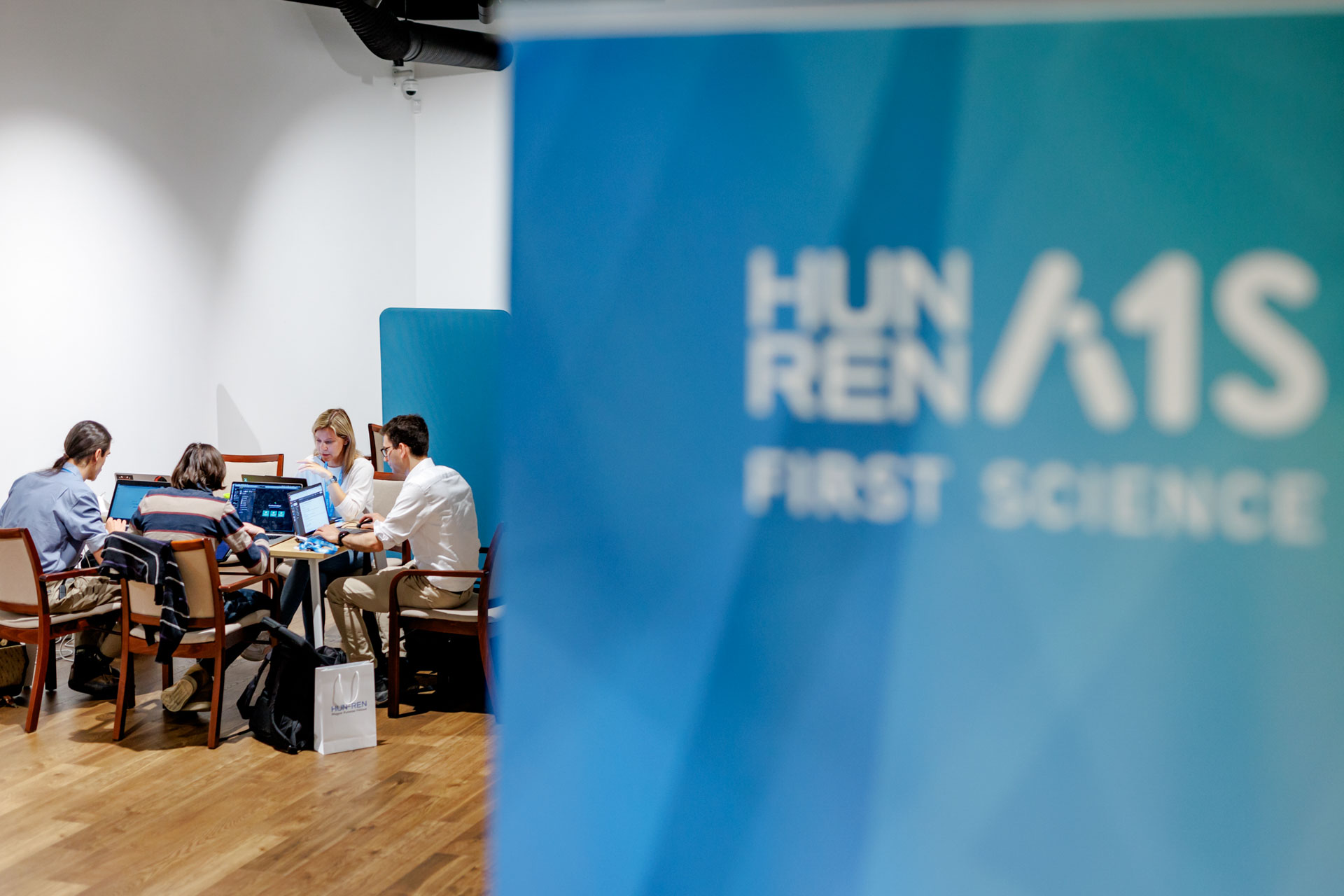Let’s Not Wait Another 16 Years to Move Up the EU Innovation Ranking
Hungary's innovation achievements since joining the EU were discussed at a series of events organised by the Hungarian Economic Association (HEA) to evaluate two decades of EU membership. István Szabó, Deputy CEO for Strategy and Innovation of HUN-REN and President of the HEA Innovation Section, also took part in the discussion.
The Hungarian Economic Association (HEA) organised a roundtable discussion entitled "Our Innovation Achievements Since EU Accession." The event was held at the HUN-REN Research Centre for Natural Sciences (HUN-REN RCNS) at the end of June, as part of a series of programmes evaluating the achievements and experiences of Hungary's EU membership. István Szabó, Deputy CEO for Strategy and Innovation of HUN-REN, shared his thoughts on the organisation's new strategy.
At the event evaluating Hungary's innovation achievements during its EU years, Magdolna Csath, Research Professor at Pázmány Péter Catholic University, Vice President of the HEA Innovation Section, and Member of the Board of the Competitiveness and IT Sections, presented Hungary's innovation outcomes. Ádám Rottenbacher, Deputy Director of the European Institute of Innovation and Technology (EIT), discussed the EIT's achievements and opportunities in the development of the Hungarian innovation ecosystem, while László Ábrahám, CEO of Sensirion Ltd., illustrated the situation of innovative companies with several personal examples.
Giving back the value of research
"Today, most of Hungary's intellectual capital is concentrated in HUN-REN's 19 research centres, with some 3,500 dedicated researchers focusing exclusively on research," began István Szabó. He added that while the importance of research is undeniable, it is equally important for it to have an impact, whether in innovation or other areas. At the same time, the ultimate goal should be to restore the prestige of working as a researcher in Hungary.

Our goal: more efficient and higher-quality research and innovation
István Szabó explained that a complex organisational innovation project is currently underway at HUN-REN, aimed at introducing changes at both the network and Headquarters levels that will enable more efficient and impactful research within HUN-REN.
“First, we asked the institutes to complete a self-assessment, which included an evaluation of the impact of their research and a SWOT analysis. The research sites were then evaluated by committees comprising both international and Hungarian experts, who were able to assess the research activities and operational processes from an external and expert perspective. The evaluations were completed last week, and the results will soon be summarised, with recommendations for more efficient operations. Concrete action plans, aligned with HUN-REN HQ’s Strategic Project, are expected by September.”
AI and policy support
Commenting on the challenges facing the institutes, István Szabó highlighted two key points: AI can significantly facilitate researchers' work by enabling faster and more accurate results. However, he also stressed the need for central support to ensure AI functions effectively, which led to the launch of the AI Ambassador Programme. Another priority area is policy support. According to István Szabó, it is crucial for policymakers to stay informed about the work of the research network, as the latest research findings do not always reach them. In this regard, HUN-REN HQ can play an important role in bridging the communication gap.
Reflecting on points raised earlier in Magdolna Csath's presentation, István Szabó noted that according to 2008 data, Hungary ranked 21st on the European Innovation Scoreboard, and today we are still roughly in the same position. "In 16 years, a new generation of researchers has emerged, but we have not moved up the rankings. Let's not wait another 16 years to make progress," added HUN-REN's Deputy CEO for Strategy and Innovation.
Working (also) for the young generation
On the topic of impact, he noted that some researchers become frustrated when their work cannot be patented, even though the core value of their research lies not in patents but in its societal impact, which is equally important.
“If we explain to 12- to 14-year-olds what is being done here, for example at the HUN-REN RCNS, and show them the brain imaging lab next door, there might be one among them who says, ‘This interests me.’ And if just one out of a hundred children becomes a researcher, then it will be worth it,” said István Szabó, adding that a great deal of work is needed in this area, but it is a very strong and dedicated focus at HUN-REN.

